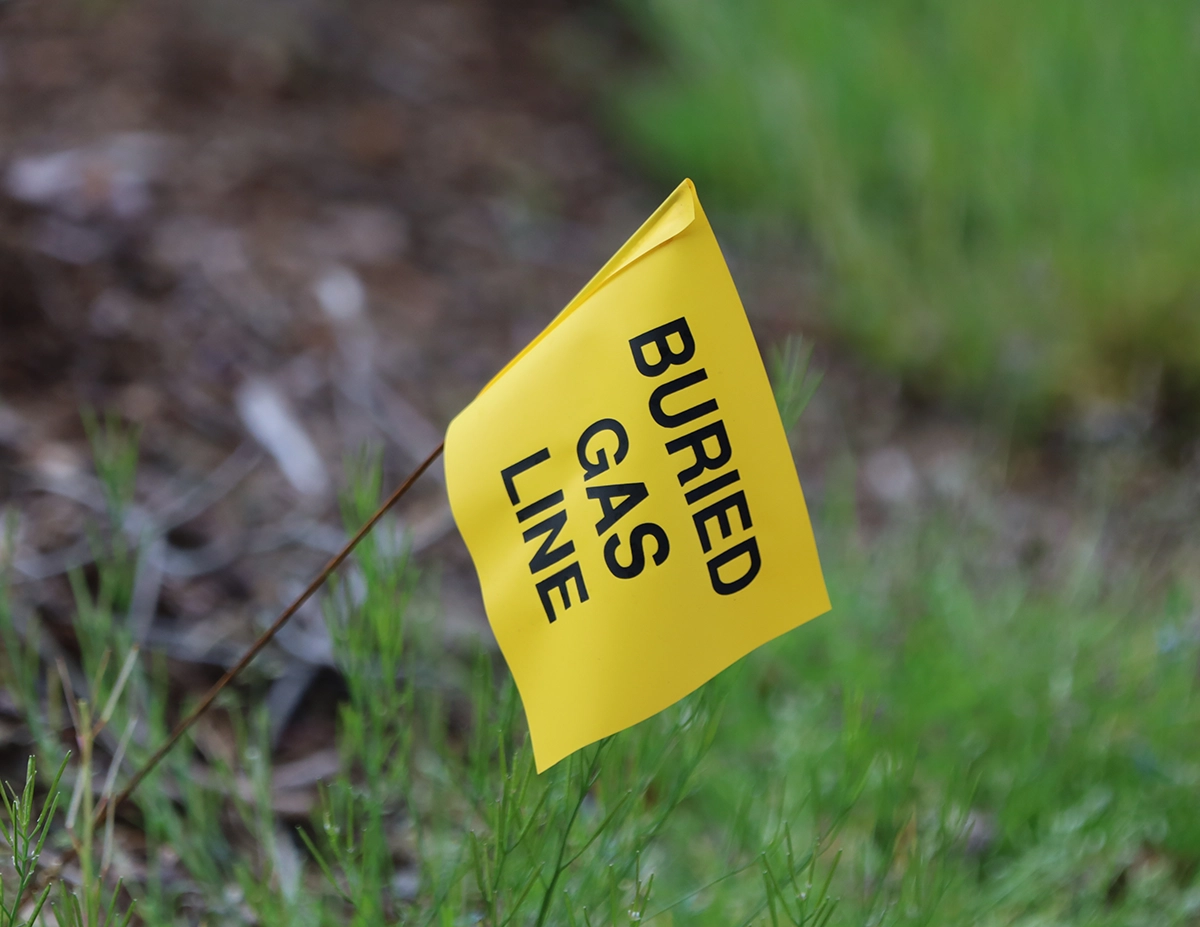When it comes to home projects that involve digging, safety must come first. One of the most common—and often overlooked—dangers lies beneath your feet: gas lines. If you’re planning on installing a fence, planting trees, or doing any kind of excavation, you may be wondering, how deep are gas lines buried?
At True Blue Plumbing, we often receive this question from homeowners throughout Snellville, GA. While the answer can vary, understanding gas line depth and safety procedures is essential for avoiding dangerous—and expensive—mistakes.
How Deep Are Gas Lines Buries?
The standard depth for residential gas lines is usually 18 to 24 inches underground. However, this can vary based on:
-
Local building codes
-
Soil conditions
-
Climate and frost lines
-
Type of property (residential vs. commercial)
In Georgia, particularly around Snellville, local utility companies generally follow these depth guidelines. However, over time, erosion, landscaping changes, or previous incorrect installations can affect how deep your gas lines actually are.
Why How Deep a Gas Line is Buried Varies
Even though there’s a standard, not all properties follow it perfectly. Here are a few reasons why gas lines might not be buried at the expected depth:
1. Older Installations
Gas lines installed decades ago may not meet today’s code requirements. Older homes in the Snellville area might have lines that are shallower or placed in unexpected areas.
2. Soil Type and Terrain
Clay-heavy soil or rocky terrain might affect how deep lines can go. In some cases, contractors may adjust depth to avoid damaging the pipe or surrounding structures.
3. Erosion and Landscaping
Over time, changes to your yard—such as grading, digging, or even erosion from storms—can expose or shift gas lines closer to the surface.
4. Repairs or Extensions
Sometimes repairs or DIY additions to your gas line system may not have been buried to the proper depth, especially if not installed by a licensed plumber or gas contractor.
What Happens If You Hit a Gas Line?
Hitting a gas line can be extremely dangerous. Natural gas is highly flammable and can cause:
-
Explosions
-
Fires
-
Toxic gas leaks
-
Evacuations
-
Costly fines or repair bills
Even a small puncture can release gas and create a hazardous situation. That’s why digging without locating underground utilities is never worth the risk.
Call Before You Dig: It’s the Law
Whether you’re installing a mailbox or doing major construction, Georgia law requires you to contact 811 before digging. This is a free service that sends professionals to mark underground utilities on your property.
Here’s how it works:
-
Call 811 or visit Georgia 811 at least 3 business days before your project.
-
Utility companies will be notified and will send out technicians to mark gas, electric, water, and other underground lines using color-coded flags or paint.
-
Yellow markers indicate gas lines.
Once marked, you’ll have a clear visual of where you can and can’t dig safely.
Signs of a Shallow or Damaged Gas Line
If you’re worried your gas line might be buried too shallow or may have sustained damage, keep an eye out for the following warning signs:
-
Smell of rotten eggs – a telltale sign of a gas leak
-
Hissing sounds near the ground or appliances
-
Dirt blowing up from the soil
-
Unusual dead patches of grass or plants
-
Increased gas bills without explanation
If you notice any of these, leave the area immediately and call 911, followed by your gas utility provider. Then call a licensed plumbing company like True Blue Plumbing for inspection and repair.
Can I Install or Replace My Own Gas Line?
Short answer: No, and you shouldn’t try.
Gas line work should only be performed by licensed professionals. In Georgia, unauthorized installation or repair of gas lines is illegal and incredibly dangerous.
At True Blue Plumbing, we are fully licensed and trained to:
-
Install new gas lines to code
-
Repair or reroute damaged lines
-
Pressure test for leaks
-
Secure proper permits and inspections
DIY gas line work puts your home, health, and even your insurance at risk.
How True Blue Plumbing Ensures Gas Line Safety
When you hire True Blue Plumbing in Snellville, GA, you’re getting a team that takes safety, compliance, and quality seriously. We always:
-
Confirm depth and placement before any work begins
-
Use high-grade materials built for long-term performance
-
Ensure proper backfill to protect from erosion
-
Conduct pressure and leak tests before final approval
-
Pull permits and follow all Snellville and Gwinnett County codes
Whether you’re installing a gas line for an outdoor kitchen or repairing an old one, we’ve got the experience and tools to handle it safely and efficiently.
How Deep Are Gas Lines Buried in Snellville, GA?
As mentioned earlier, most gas lines in our area are 18 to 24 inches deep, but the only way to be sure is to have them properly located. Don’t take chances with your safety—always call 811 before starting a digging project.
And if you’re in doubt about your existing gas line depth or condition, contact True Blue Plumbing for an inspection. We can locate, assess, and ensure your gas lines are up to standard.
Final Thoughts on How Deep Gas Lines are Buried
So, how deep are gas lines buried? While 18 to 24 inches is typical, you can’t assume that’s the case on your property. Soil movement, age, and improper installation can all affect depth and safety.
Before you dig—or if you suspect a problem with your gas line—call the professionals. At True Blue Plumbing, we’re here to help keep your property safe and your gas lines reliable.


